South Korea enhances Safety Standards for Hydrogen Refueling Facilities
The Ministry of Trade, Industry, and Energy (MOTIE) has approved substantial updates to the safety standards for hydrogen fueling facilities. The implementation has now been announced after the Korea Gas Safety Corporation (KGS) made adjustments to the KGS codes FP216 and FP217. These revisions are part of a broader initiative aimed at increasing their practical application in the industry. The updated codes feature an expansion of the scope previously limited to “Hydrogen Vehicle Charging Facilities,” now adopting the broader term “Hydrogen Fuel Charging Facilities.” This change opens the way for diverse hydrogen-powered transport modes to utilize these facilities more widely. Hydrogen systems, equipment and components generally require a KGS factory approval in order to be approved for import and sale in Korea.
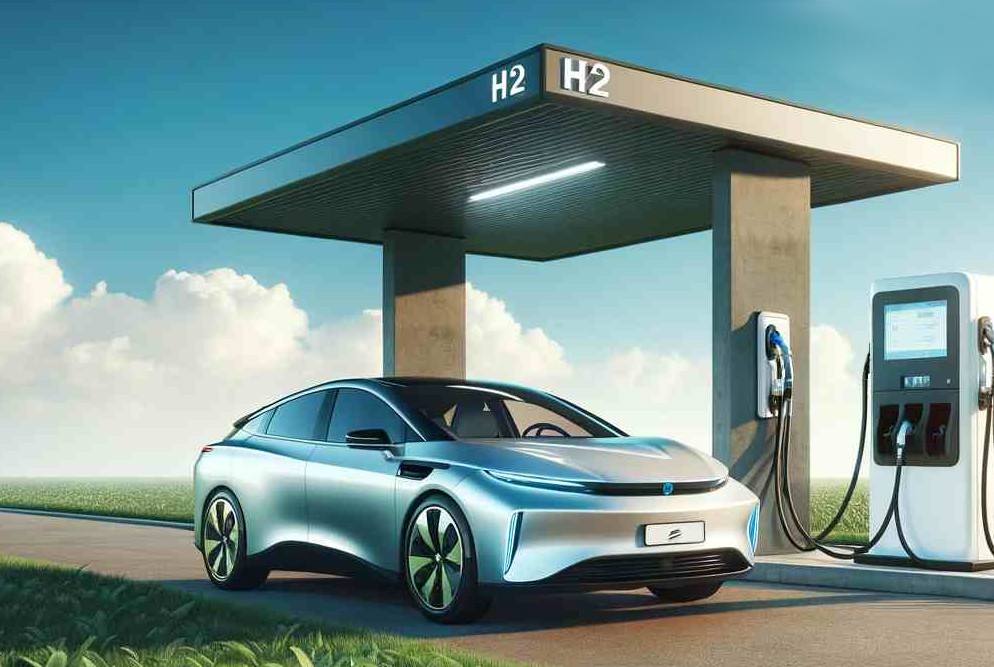
Additionally, regulations regarding distances between fueling equipment and road boundaries have been relaxed under specific conditions. Facilities employing protective barriers are now allowed more flexibility in terms of required distances, enabling optimal space utilization without sacrificing safety.
Further flexibility in facility layout has also been introduced. Safety distances between hydrogen fueling installations and adjacent protective facilities or property boundaries can now be reduced, provided enhanced safety measures, such as reinforced protective barriers and dual automatic shut-off valves, are implemented.
Moreover, new safety standards specifically designed for hydrogen-powered ships have been introduced, aligning with recent regulatory developments and expanding safety provisions across different hydrogen fueling scenarios.
In line with international safety standards, the ministry has introduced a new safety performance evaluation system. This system, incorporating widely recognized standards such as SAE J2601 and CSA/ANSI HGV 4.3, provides detailed methodologies for assessing the safety performance of hydrogen fueling operations.
The updates also clarify operational procedures regarding interlock pressure settings. Compressors’ interlock pressures must now be set below the threshold pressures of safety devices positioned downstream, ensuring enhanced safety during operations.
Lastly, FP217 has been revised to ensure complete alignment with existing high-pressure gas safety management rules, particularly regarding requirements for protective shielding of equipment located within 30 meters of sensitive facilities.
Collectively, these changes significantly enhance safety management and offer greater operational flexibility, fostering a more extensive and efficient deployment of hydrogen fuel technology across various transportation sectors.
Feel free to contact us any time if you need assistance or have any questions regarding Korean certifications like KC, KC EMC, KCs, KCs for explosion safety products or KGS factory registration.
Tel. Europe: +49-69-271 37 69 259
Tel. US: +1 773 654-2673
Email: info@korea-certification.com
For more information you can download our free brochure “Korea Certification Made Easy – The Booklet“.
South Korea to launch Liquefied Hydrogen Inspection Center, Trial Operations slated for first Half 2025
South Korea is preparing to open its first dedicated inspection and certification center for liquefied hydrogen, with trial operations scheduled to begin in the first half of this year. Located in Eumseong, North Chungcheong Province, the facility aims to play a central role in ensuring the safe adoption and commercialization of liquefied hydrogen technology nationwide. Pressure vessels, safety valves and similar products used in conjunction with hydrogen systems generally require KGS factory approval in order to be approved for import and distribution in Korea.
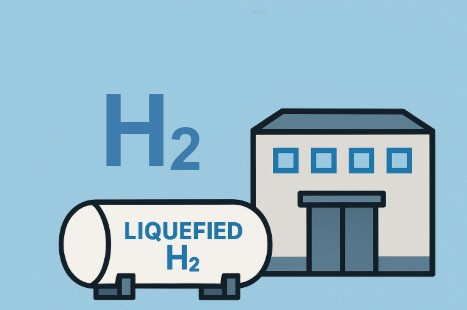
The Liquefied Hydrogen Inspection Support Center, overseen by the Korea Gas Safety Corporation (KGS), was structurally completed in February 2025. Final preparations are now underway to install advanced testing infrastructure designed to evaluate the safety and performance of liquefied hydrogen containers and related components under extreme cryogenic conditions.
According to KGS Hydrogen Safety Policy Director Kim Hong-chul, once equipment installation is finalized, a series of trial runs will begin to verify system stability. The center is expected to transition into full operation later this year, with a formal opening ceremony planned around November.
Spanning over 8,000 square meters of land and offering nearly 2,000 square meters of indoor space, the center is backed by a KRW 33.2 billion (roughly USD 24 million) investment. It will house 23 categories of testing and certification equipment, totaling 27 individual devices. Among them are systems for vacuum insulation testing of hydrogen storage tanks and cryogenic functional testing of critical valve types such as safety valves and emergency shut-off valves.
The facility represents a significant milestone for Korea’s hydrogen infrastructure. As liquefied hydrogen must be stored at –253°C in a highly flammable liquid state, maintaining robust insulation and ensuring material resilience are essential. The center will support these needs by conducting key safety evaluations such as normal evaporation rate (NER) analysis and helium leak detection.
Beyond compliance testing, the center is also expected to function as a research and development hub for cryogenic technology. Mechanical testing equipment for impact and tensile strength assessments at cryogenic temperatures will support domestic manufacturers in advancing their hydrogen-related products.
Once fully operational, the Liquefied Hydrogen Inspection Support Center is set to enhance Korea’s regulatory framework, support innovation in cryogenic engineering, and accelerate the safe expansion of the nation’s hydrogen economy.
Feel free to contact us any time if you need assistance or have any questions regarding Korean certifications like KC, KC EMC, KCs, KCs for explosion safety products or KGS factory registration.
Tel. Europe: +49-69-271 37 69 259
Tel. US: +1 773 654-2673
Email: info@korea-certification.com
For more information you can download our free brochure “Korea Certification Made Easy – The Booklet“.
Korea to Strengthen Product Safety Oversight and Recall Measures in 2025
The Korean Agency for Technology and Standards (KATS), operating under the Ministry of Trade, Industry, and Energy, has announced comprehensive enhancements to its product safety inspection strategy for 2025. The revised plan includes a significant expansion in monitoring both overseas direct purchases and domestic markets. Inspections of imported online purchases will more than double from 450 to 1,000 items, with a focus on blocking hazardous goods from entering Korea. E-commerce platforms will be mandated to delist unsafe items. Domestically, 4,700 products—particularly those with high safety risks like children’s items and electrical appliances—will undergo scrutiny. Collaboration efforts will also intensify, with coordinated crackdowns involving the police and local authorities increasing in frequency and regional reach. Products covered under this initiative usually require KC certification under Korea’s safety and quality standards in order to be approved for import and sale in Korea.
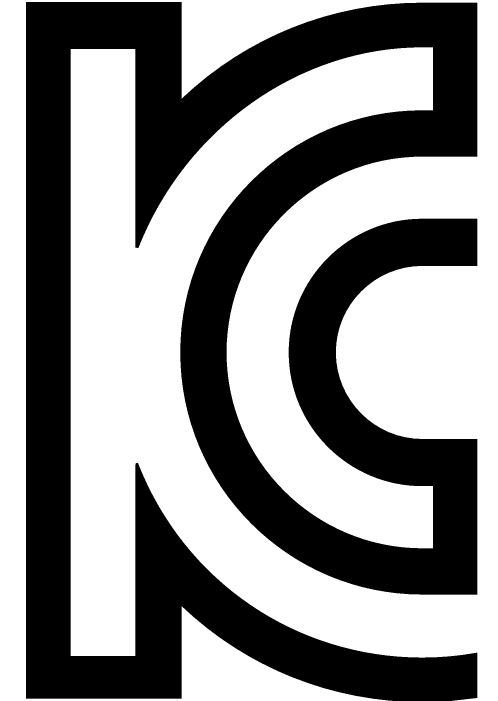
The inspection campaign is structured into multiple phases, spanning April to November, with seasonal and high-risk products receiving prioritized attention. Over 70% of inspections will target e-commerce platforms. Additionally, enforcement against uncertified or illegal goods such as non-KC-marked electric scooters and bicycles will be ramped up through joint efforts with 24 local governments and police operations. Public participation is also emphasized, with over 150 consumer watchdogs and 20 online platforms involved in surveillance. Recall management will be reinforced through direct consumer notifications by eight major platforms and enhanced tracking in retail stores supported by 870 million KRW in funding. Educational initiatives will further amplify consumer awareness via digital media and in-store kiosks.
Feel free to contact us any time if you need assistance or have any questions regarding Korean certifications like KC, KC EMC, KCs, KCs for explosion safety products or KGS factory registration.
Tel. Europe: +49-69-271 37 69 259
Tel. US: +1 773 654-2673
Email: info@korea-certification.com
For more information you can download our free brochure “Korea Certification Made Easy – The Booklet“.
New KGS Standard for Hydrogen Vehicle Composite Cylinders finalized
At the end of March, the Gas Technology Standards Committee held its 162nd meeting and approved some amendments for the finalization of the new KGS AC421 standard for compressed hydrogen composite cylinders used in vehicles. This new standard is part of Korea’s ongoing efforts to enhance the safety and performance of high-pressure hydrogen storage solutions. Pressure Vessels usually require KGS factory registration to be approved for import and sales on the Korean market.
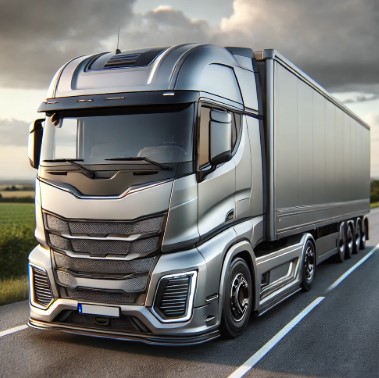
The newly drafted KGS AC421 establishes comprehensive requirements for the manufacturing, design, materials, structure, heat treatment, performance testing, and labeling of composite hydrogen cylinders intended for use in transportation.
One of the major changes concerns the cylinder design life. The wording was revised from “15 years or less” to a “minimum of 15 years” to align design specifications with the legal operational limits. This ensures a consistent approach between cylinder design and usage throughout their service life.
Furthermore, foreign certification recognition criteria were clarified under KGS AC421. Specific accepted foreign standards and inspection bodies, such as ANSI (USA) and ECE (Europe), are now clearly listed. This provides better transparency and allows for the recognition of foreign-manufactured cylinders without requiring additional inspections.
The manufacturing facility requirements have also been updated. The requirements for heat treatment furnaces were revised to match the criteria already defined in KGS AC411 for aluminum liner composite cylinders. Furnaces must now be designed to limit internal temperature variations to within 25°C and must be equipped with automatic temperature recording devices to ensure precise heat treatment control.
Testing procedures have been strengthened. The material used in environmental and pressure tests must now be strictly a “liquid” rather than a general “fluid,” eliminating ambiguity regarding the test medium in low-temperature environments. Additionally, KGS AC421 introduces new hydrogen compatibility testing requirements for metallic liners. These tests, based on ASTM G142, verify the suitability of materials under high-pressure hydrogen environments. The acceptance criteria have been harmonized with those found in KGS AC111, ensuring consistent performance expectations across standards.
Inspection requirements were also expanded. In this latest version, external appearance inspections have been introduced, and the sampling methods for dimensional checks, liner tensile and impact tests, protective coating adhesion, and burst tests have been clearly defined. These enhancements strengthen the quality control process during production and improve overall product reliability.
The committee concluded the meeting by approving all remaining amendments to the detailed standards. A timeframe for the formal implementation of the new KGS code KGS AC421 has yet to be officially announced.
Feel free to contact us any time if you need assistance or have any questions regarding Korean certifications like KC, KC EMC, KCs, KCs for explosion safety products or KGS factory registration.
Tel. Europe: +49-69-271 37 69 259
Tel. US: +1 773 654-2673
Email: info@korea-certification.com
For more information you can download our free brochure “Korea Certification Made Easy – The Booklet“.
Joint SAF Plant Construction to Strengthen Korea’s Petrochemical Capabilities
South Korea’s four leading oil refining companies—SK Innovation Co., GS Caltex Corp., S-Oil Corp., and HD Hyundai Oilbank Co.—are planning to jointly construct a sustainable aviation fuel (SAF) plant at one of the country’s four major petrochemical industrial complexes. The project will be carried out and operated by a newly established special purpose company. According to industry sources, the proposed locations include Ulsan (South Gyeongsang Province), Yeosu (South Jeolla Province), and Seosan and Daesan (both in South Chungcheong Province). The South Korean government is currently reviewing the possibility of providing subsidies and tax incentives to support the initiative. Pressure vessels and pressure equipment used in petrochemical complexes usually require KGS certification in order to be approved for import and sale in Korea.
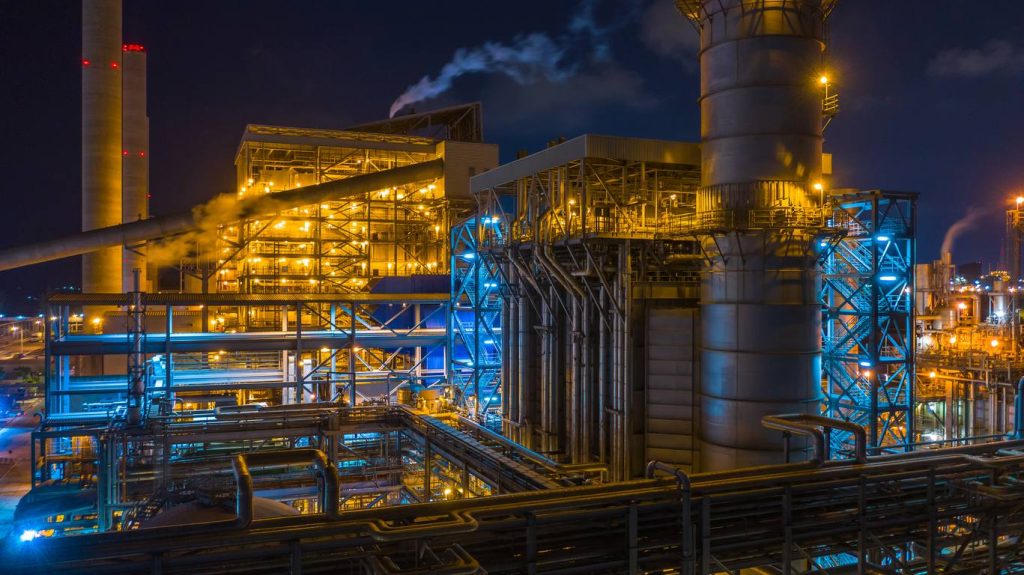
The planned SAF facility is expected to cost over 1 trillion won (approximately USD 700 million) based on a processing capacity of 250,000 tons. While current SAF yields among the participating refiners remain below 10%, the new facility is projected to convert 60–80% of bio-based feedstock into sustainable aviation fuel. With the exception of SK Innovation—which in 2023 completed the country’s first dedicated SAF production line and became the first Korean company to export SAF to Europe—this will be the first such facility for the other refiners. The investment comes in response to growing international regulations, including the EU’s requirement for 2% SAF by 2025 and 70% by 2050. South Korea plans to mandate a 1% SAF blend starting in 2027.
Feel free to contact us any time if you need assistance or have any questions regarding Korean certifications like KC, KC EMC, KCs, KCs for explosion safety products or KGS factory registration.
Tel. Europe: +49-69-271 37 69 259
Tel. US: +1 773 654-2673
Email: info@korea-certification.com
For more information you can download our free brochure “Korea Certification Made Easy – The Booklet“.
South Korea introduces 4th Basic Plan for Children’s Product Safety (2025–2027)
The Korean Agency for Technology and Standards (KATS) under the Ministry of Trade, Industry, and Energy has announced the 4th Basic Plan for Children’s Product Safety (2025–2027). This initiative aims to strengthen safety management for children’s products by addressing hazardous overseas direct purchases and establishing new safety standards for emerging smart and hybrid products. The plan consists of four main strategies and nine key tasks to enhance child safety. Currently, all products intended for children under 13 years old must obtain KC certification before being sold in South Korea. However, while product recalls have declined, violations of safety regulations remain high at approximately 60%. The government is also concerned about a 43% increase in imported children’s products through direct purchases over the past four years, as many of these items do not meet local safety standards. Children’s products typically require KC Safety certification to be approved for import and sale in South Korea.

Key strategies of the plan include enhancing safety management systems, strengthening online and direct purchase safety measures, creating new standards for hybrid and smart children’s products, and improving industry compliance and consumer awareness. Actions will include introducing new warning labels, adjusting certification levels based on product risk, requiring foreign e-commerce platforms to remove hazardous products, expanding inspections of overseas recalls, and establishing a Children’s Product Safety Research Center. The government will also support manufacturers by simplifying certification procedures and providing financial assistance for product safety checks. The initiative seeks to reduce accident rates, prevent hazardous imports, and ensure a safer market for children’s products in South Korea.
Feel free to contact us any time if you need assistance or have any questions regarding Korean certifications like KC, KC EMC, KCs, KCs for explosion safety products or KGS factory registration.
Tel. Europe: +49-69-271 37 69 259
Tel. US: +1 773 654-2673
Email: info@korea-certification.com
For more information you can download our free brochure “Korea Certification Made Easy – The Booklet“.
South Korea introduces Government-Led EV Battery Certification and Tracking
In a regulatory shift, the South Korean government will now certify the safety of electric vehicle (EV) batteries before they are approved for installation, replacing the previous self-certification model by manufacturers. The new regulation, introduced under the revised Automobile Management Act, took effect on February 17, 2025 . EV batteries and certain other automotive components usually require a KC certification in order to be approved for import and sale on the Korean market.
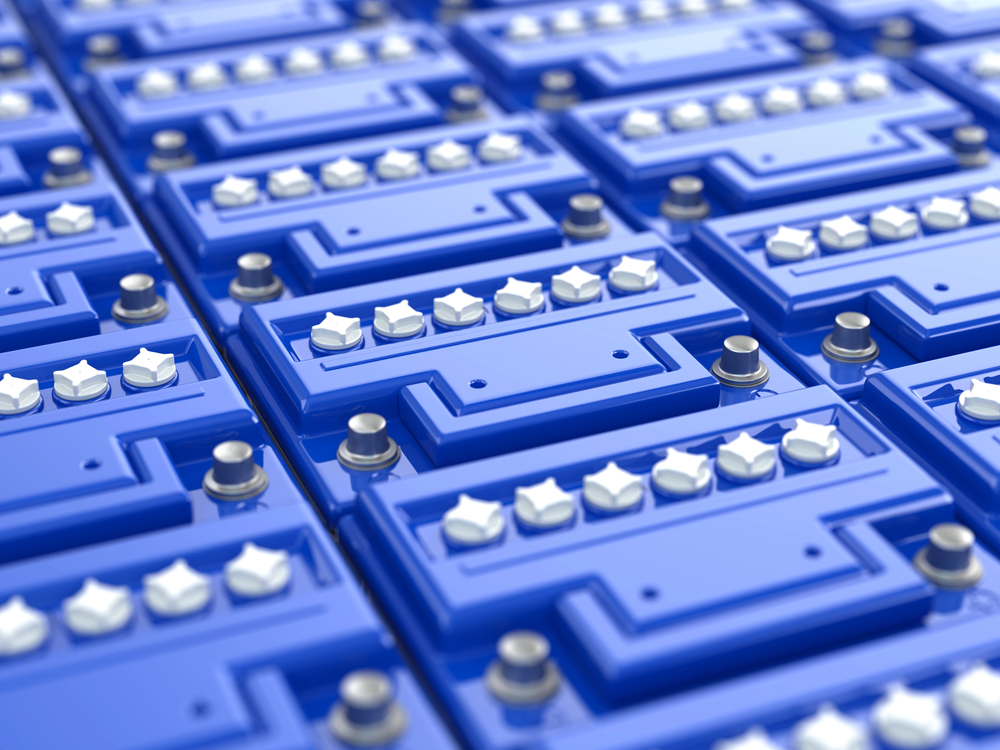
Under the new Battery Safety Certification System, EV battery manufacturers must apply for certification from the Ministry of Land, Infrastructure, and Transport (MOLIT) before selling their products. The batteries will undergo comprehensive safety performance tests, including thermal shock, combustion, overheat prevention, short circuit, overcharging, over-discharging, overcurrent, vibration, impact, compression, drop, and water immersion tests. Certified batteries must display a safety label before they can be sold. The government also reserves the right to conduct post-certification conformity inspections to ensure ongoing compliance with safety standards. If a battery is found to be non-compliant, authorities may revoke its certification and halt production, import, or sales.
In addition to safety certification, South Korea is implementing a Battery Tracking System to ensure full lifecycle management of EV batteries. Under this system, each battery will be assigned a unique identification number, which must be registered in the official vehicle records. This will allow authorities to track battery production, usage, maintenance, and disposal, making it easier to analyze the causes of battery failures or fires. When a battery is replaced, the new battery’s identification number must be updated in the registry, ensuring accurate tracking of all battery-related changes.
The government will also introduce pre-disposal performance evaluations for used batteries starting in 2027, supporting the development of battery reuse and recycling industries. Officials emphasize that these measures will enhance public confidence in EV safety while ensuring South Korea remains a leader in the global electric vehicle market.
Feel free to contact us any time if you need assistance or have any questions regarding Korean certifications like KC, KC EMC, KCs, KCs for explosion safety products or KGS factory registration.
Tel. Europe: +49-69-271 37 69 259
Tel. US: +1 773 654-2673
Email: info@korea-certification.com
For more information you can download our free brochure “Korea Certification Made Easy – The Booklet“.
MPR Celebrates 20 Years of Success in the Certification Industry
MPR International proudly celebrates its 20th anniversary as a successful company in the global certification sector. Since its founding in 2005 as MPR China Certification GmbH, the company has expanded its reach from Europe to a worldwide customer base. Initially, MPR specialized in China certifications, particularly the China Compulsory Certification (CCC). By establishing strong relationships with international authorities and offering innovative services, MPR has become a leading provider of certifications in the automotive and other product industries.
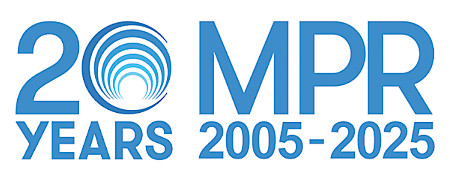
In 2013, MPR China Certification GmbH achieved a significant milestone when it was recognized as an Outstanding Certification Company by the China Certification Center for Automotive Products (CCAP). Further recognition followed from the Shanghai Motor Vehicle Inspection Center (SMVIC), which honored MPR as an Excellent Partner for vehicle components and comprehensive testing. Additionally, an MOU (Memorandum of Understanding) was signed with SMVIC.
Since 2019, MPR has successfully expanded its reach to the markets of India, Korea, and Japan.
In India, the company strengthened its collaboration with the Bureau of Indian Standards (BIS), which paid an official visit to Frankfurt to enhance certification processes and international partnerships, offering clients more efficient solutions. Furthermore, MPR works closely with the Automotive Research Association of India (ARAI) and the International Centre for Automotive Technology (iCAT) to provide type approvals and regulatory compliance services in the growing Indian market. An MOU was also signed with iCAT.
In Korea, MPR collaborates with local authorities and testing laboratories to ensure compliance with national standards. This partnership has been reinforced through regular visits to Korean certification bodies and technical inspection institutions, which has helped streamline and enhance the transparency of certification processes for clients in Korea.
A pivotal step in the company’s development was joining the Certania Group, a leading conglomerate specializing in testing, inspection, and certification services. This has enabled MPR to significantly expand its global testing and service capabilities.
MPR is committed to further expanding its capacity to ensure fast and reliable certification processes. Its participation in forums such as the Future Battery Forum underscores its dedication to supporting the introduction of innovative technologies into international markets. MPR has already established itself as a trusted certification provider for battery technologies, e-mobility, and hydrogen products.
Through strong partnerships and continuous improvements, MPR remains a leader in the product certification industry and looks forward to continuing to offer its clients excellent and optimized services.
Updated Certification Standards for Hydrogen and Gas Tanks/ Cylinders in Korea
The Ministry of Trade, Industry, and Energy (MOTIE) in Korea has implemented new standards for high-pressure gas storage and related equipment under the Korean Gas Safety Corporation (KGS) codes. Effective January 2025, the revisions aim to enhance safety, clarify compliance protocols, and align with international regulations. Products categorized under KGS AC113, AC417, and AC211 require KGS factory registration for approval to be imported and sold in Korea.
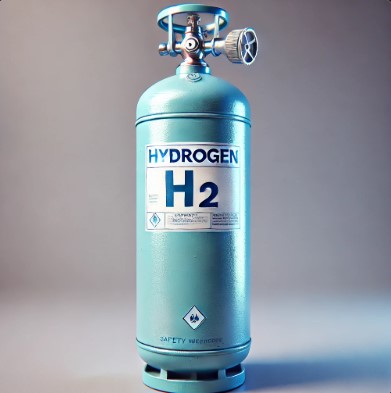
The updated KGS AC113 standard, applicable to tanks mounted on vehicles, introduces expanded material options by permitting austenitic stainless steel for pressure-bearing parts. Testing protocols now include inspections for safety valve retention time, while improved insulation and pressure monitoring designs bolster transport safety. Under KGS AC417, standards for hydrogen cylinders used in fuel cell vehicles now synchronize with international criteria, refining inspection, labeling, and terminology for “hoop-wrapped cylinders.” The KGS AC211 code corrects clause references, clarifies testing methods, and incorporates ISO standards for welded gas cylinders. These updates provide clearer safety guidelines and ensure compliance with both local and global standards.
Feel free to contact us any time if you need assistance or have any questions regarding Korean certifications like KC, KC EMC, KCs, KCs for explosion safety products or KGS factory registration.
Tel. Europe: +49-69-271 37 69 259
Tel. US: +1 773 654-2673
Email: info@korea-certification.com
For more information you can download our free brochure “Korea Certification Made Easy – The Booklet“.
Updated KGS Standards for Pressure Vessels in Korea
Effective January 2025, Korea has introduced updates to its KGS AC111 standard, which applies to high-pressure gas storage tanks and pressure vessels. These revisions, issued by the Ministry of Trade, Industry, and Energy under the Korean Gas Safety Corporation (KGS), emphasize stricter safety protocols and testing measures. Pressure vessels falling under this standard typically require KGS certification for approval in Korea.
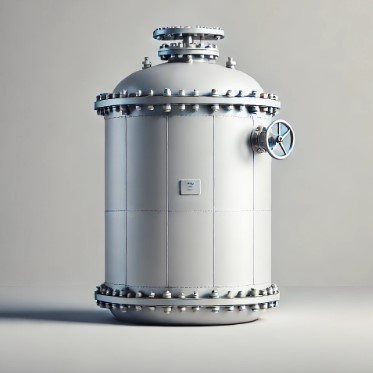
The revised AC111 prohibits the use of nickel and nickel alloy steels susceptible to embrittlement in liquid hydrogen conditions. It mandates new insulation performance tests to measure hydrogen loss over 24 hours and requires manufacturers to conduct helium leakage and vacuum tests, including room-temperature and cryogenic vacuum inspections. Thermal treatment for pressure-bearing components made of 304L stainless steel must now comply with ASME Sec. VIII Div.1 standards. Design enhancements include mandatory vacuum measurement ports and filters in insulation spaces. Exemptions have also been introduced for storage tanks located in specific regulatory zones.
Feel free to contact us any time if you need assistance or have any questions regarding Korean certifications like KC, KC EMC, KCs, KCs for explosion safety products or KGS factory registration.
Tel. Europe: +49-69-271 37 69 259
Tel. US: +1 773 654-2673
Email: info@korea-certification.com
For more information you can download our free brochure “Korea Certification Made Easy – The Booklet“.



